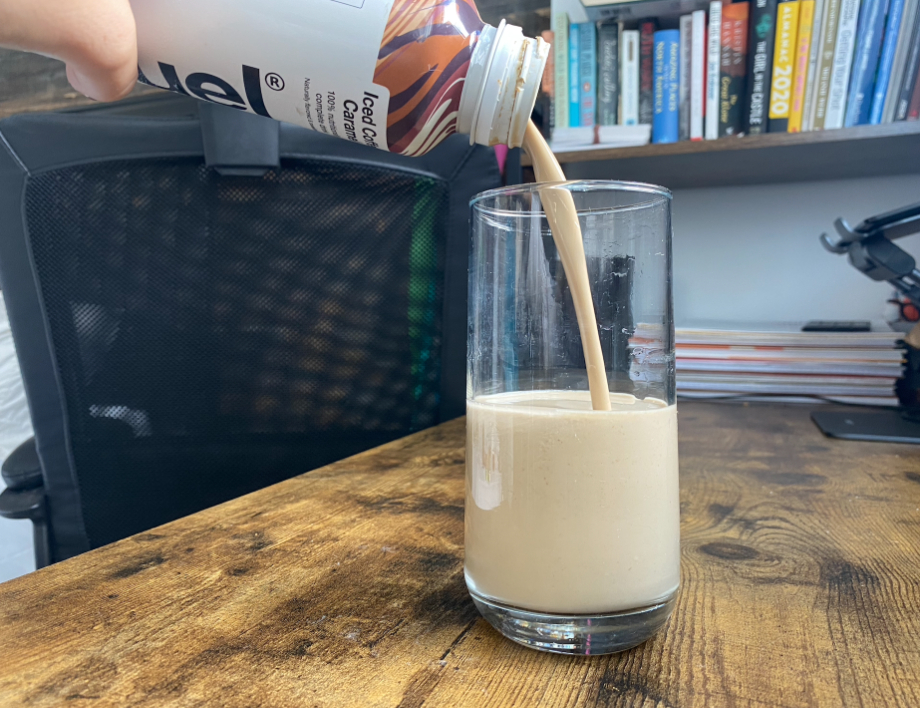We test and review fitness products based on an independent, multi-point methodology. If you use our links to purchase something, we may earn a commission. Read our disclosures.
If your goal is to gain strength and build muscle, you’ve probably heard that eating protein after a workout is important. Protein is commonly known for building muscles, but it’s also essential for transporting and storing nutrients throughout the body, maintaining fluid balance, and supporting biochemical reactions and immune health.
With all that protein has to offer, it’s no wonder there’s such a buzz around it, especially in the fitness community. Chances are, you’ve already stocked your fridge with beef, chicken, and eggs and scoured the health food aisles searching for the best protein powder.
Eating protein after a workout could help you achieve certain strength training fitness goals, but implementation matters. Keep reading to learn more about the benefits of protein post-workout, how much protein to consume, and how to time out your protein intake throughout the day.
Medical disclaimer: This article is intended for educational and informational purposes only. It is not intended as a substitute for medical advice. For health advice, contact a licensed healthcare provider.
Benefits of Protein Post-Workout
Protein is one of three macronutrients required by the body. Protein molecules are composed of chains of amino acids. There are 20 amino acids, and nine of them are essential, meaning the body doesn’t make them, so we have to consume them through the foods we eat1.
RELATED: Macros for Weight Loss
Of the nine essential amino acids, three are branched-chain amino acids (BCAAs2), known to stimulate muscle protein synthesis and aid in post-workout recovery.
Animal protein from chicken, beef, and turkey is considered a complete source of protein, meaning it contains all the essential amino acids. Some plant protein sources like tofu, edamame, and quinoa are complete proteins, but most plant foods lack at least one essential amino acid.

Eating quality protein, with all of the essential amino acids, provides numerous health benefits to the body. Let’s dissect some of the benefits of protein for post-workout recovery specifically.
Maintains Lean Mass
Muscle proteins are in a constant state of turnover, meaning they need to be recycled and renewed. Consuming enough protein provides the amino acids needed to stimulate muscle protein synthesis while simultaneously reducing muscle protein breakdown1. If protein is not replaced, deficiency occurs, and muscles deteriorate.
Repairs Muscle
During intense bouts of resistance exercise, the proteins that make up your muscle fibers become damaged. Athletes consume dietary protein3 to repair and rebuild skeletal muscle tissues post-workout.
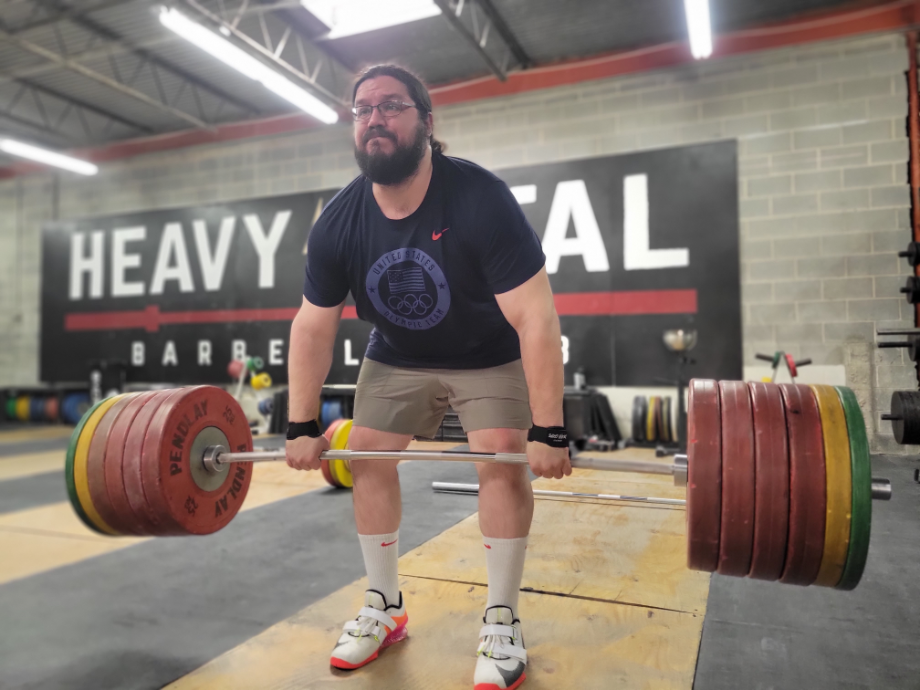
Builds Muscle
Building muscle4 requires considerably more protein than what’s needed for maintenance. It’s theorized that increasing protein after a workout, which suppresses muscle protein breakdown, will result in a positive net protein balance contributing to increased muscle protein synthesis and muscle mass.
RELATED: Supplements for Muscle Growth
Fuels the Body
The body’s preferred source of energy is glucose from carbohydrates. During prolonged periods of exercise or malnutrition, when carbohydrates aren’t available, fat and protein can provide energy. Using protein for energy isn’t ideal as your body breaks down your muscles into amino acids to use for energy resulting in muscle loss.
When Should I Consume Protein Post-Workout?
Post-workout protein is an effective way to achieve the positive muscle protein balance needed to gain strength and muscle mass3.
However, there’s no need to panic if you’re not within arm’s reach of protein right away. Muscle protein synthesis after a workout is believed to peak within three hours and remain elevated for 24 to 72 hours after a workout3.
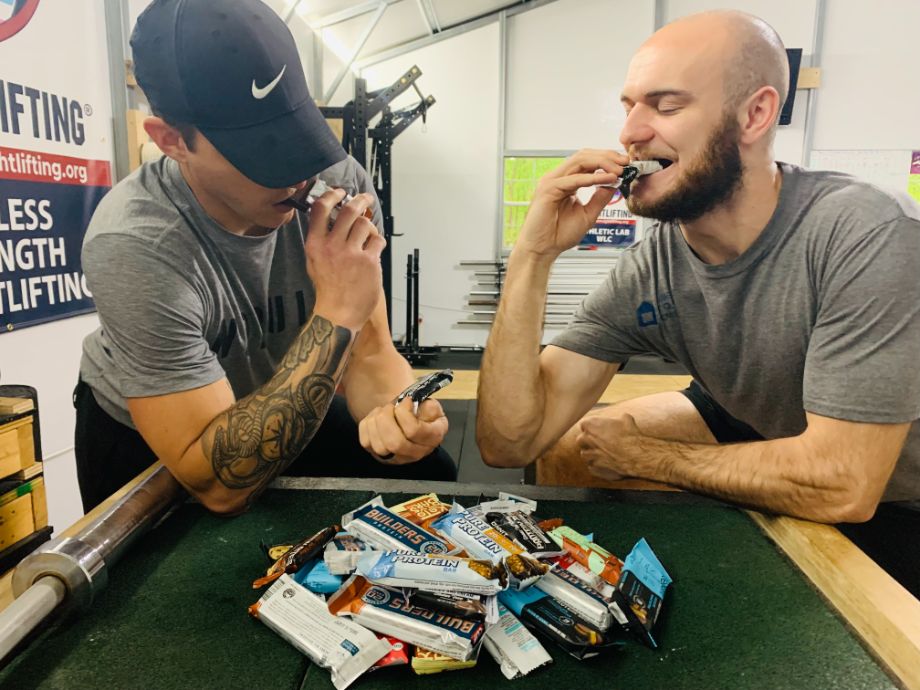
Protein within three hours of a workout, and every three to four hours thereafter, may optimize the nutritional impact. Timing protein consumption approximately three hours apart is shown to sustain increased levels of muscle protein synthesis3.
How Much Protein Do I Need?
If you’re wondering how much protein do I need?, it depends—on your activity level and fitness goals. The current recommended daily allowance of protein for adults set forth by the USDA is 0.8 grams per kilogram of body weight3. This amount roughly equates to 0.36 grams of protein per pound of body weight.
This means that someone who weighs 150 pounds would need to eat about 55 grams of protein daily. This amount is needed to avoid deficiency but is inadequate for muscle repair and growth.
A higher intake of protein is recommended for endurance athletes and weightlifters. For instance, the American College of Sports Medicine5 recommends aiming for 1.2 to 1.7 grams of protein per kilogram of bodyweight for increased muscle mass and high physical activity. So, that same 150-pound person would need 82 to 115 grams of protein daily.
Eating too much protein for prolonged periods of time can result in weight gain due to excess calories. Extra protein is stored in the body as fat and the amino acids are excreted in urine. Additionally, a high-protein diet is often thought to cause kidney damage, however research indicates that this is not the case for healthy, exercising individuals without pre-existing kidney disease3.
A registered dietitian that specializes in sports nutrition can help you determine the right amount of protein based on your goals and activity level.
Protein After a Workout: Which Type Should You Take
With so many protein options available, it’s challenging to know what kind provides the maximum benefits. Protein is usually evaluated based on essential amino acid, BCAA, and macronutrient content.
Whole Food Sources
Your first choice for protein is from whole-food sources, like meat, seafood, dairy, and beans, to name a few. Animal protein has the highest concentration of protein content per serving, plus a full amino acid profile, but not everyone wants to eat meat, or animal products in general.
Dairy, like Greek yogurt, eggs, and cottage cheese, are all great high-protein foods that can provide a substantial dose of protein post-workout.

Other plant-based proteins from foods like peas, legumes, brown rice, and seeds are usually incomplete sources. However, combining plant-based proteins can provide a complete source of protein with all of the essential amino acids.
A systematic review and meta-analysis6 involving 16 studies found that animal protein increased lean body mass percentage compared to plant-based protein. The same study determined no significant differences in strength gains between participants eating plant-based or animal-based protein. (Also, we hate to break it to you, but nut butter is a fat first, so don’t go loading up on the peanut butter thinking you’re downing a great protein source.)
Check out our list of high-protein foods for muscle-building for a bunch more options.
Whey Protein Powder
There are several main types of protein powder, with whey protein being the most popular. Whey protein powder is a complete protein that contains the greatest density of leucine, a BCAA known to stimulate muscle protein synthesis more than the other essential amino acids3. Whey protein is water-soluble, making it easy to mix in a protein shake without clumps, and it’s easily digested.
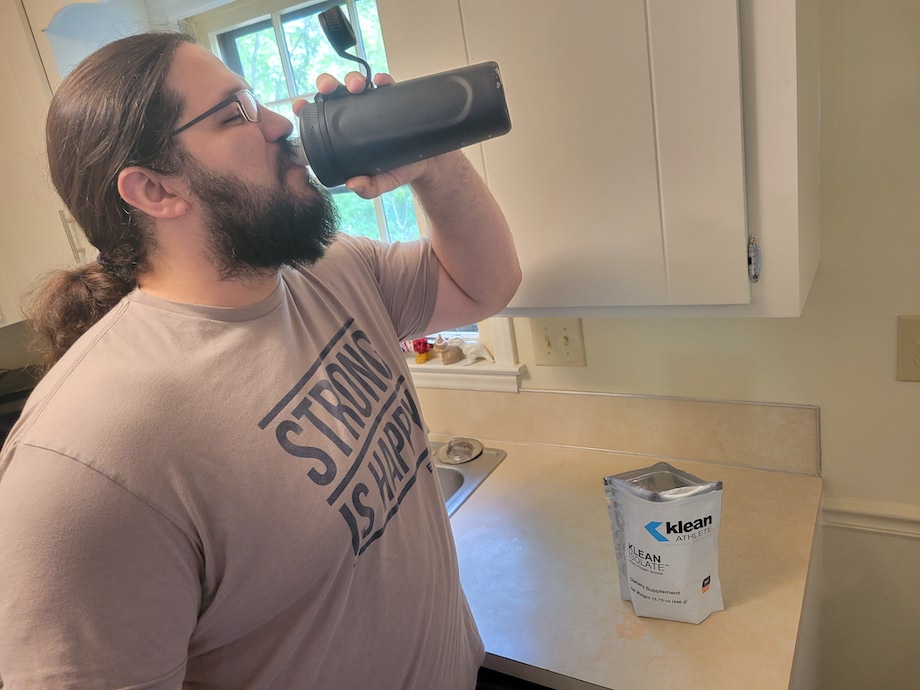
A research study7 on trained bodybuilders taking whey and casein protein (both milk proteins) showed that those who supplemented with whey protein had greater gains than those who took casein protein over a 10-weeks span.
Additionally, whey protein increases your body’s supply of glycogen storage after a workout8. Glycogen is stored in skeletal muscles and converted to energy during prolonged high-intensity exercise.
Plant-Based Protein Powder
Vegan protein powder is another viable option to help supplement your protein intake. Many single plant-based proteins are incomplete on their own, so manufacturers will create a blend of several proteins to provide a complete amino acid profile.
The exception to that is soy protein, which is a complete plant-based protein (albeit lower quality than whey protein). It contains a lower density of essential amino acids and BCAAs when compared to whey protein3.
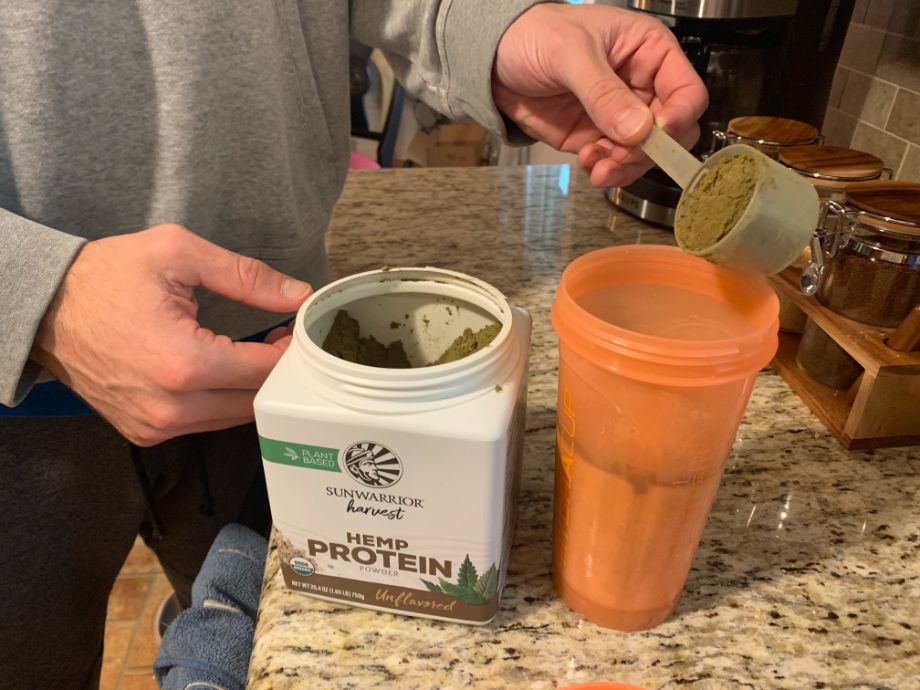
A short-term study7 comparing whey, soy, and casein protein found that soy protein stimulated less muscle protein synthesis than whey, but more than casein, after an acute bout of lower body resistance training.
However, a meta-analysis8 involving nine long-term studies determined no significant differences between whey and soy protein in terms of gains in strength and lean body mass. Long-term studies refute the notion that whey protein is superior to soy.
Carbs and Fats: What Else to Eat Post-Workout
Plan to include carbohydrates and protein in your post-workout meal. Carbohydrates are needed to replenish glycogen stores. Remember, glycogen stores are used during exercise for energy. Endurance athletes need more carbohydrates after a workout than weightlifters because their bodies use more glycogen.
RELATED: Best Carb Supplement
Insulin secretion9, which encourages glycogen synthesis, is better stimulated when carbohydrates are consumed with protein. Therefore, eating protein and carbohydrates together after a workout is ideal for increased muscle protein and glycogen synthesis.
More research is needed to determine if consuming fat post-exercise is beneficial.
Eating a source of fat post-workout could slow nutrient absorption from protein and carbohydrates because fat slows digestion. Nevertheless, this doesn’t mean the benefits of these nutrients are reduced. For example, one study10 found that consuming whole milk resulted in more muscle growth than skim milk.
Protein After a Workout: Final Thoughts
Eating protein after a workout helps your body maintain lean mass, repair muscle damage, and even build new muscle. Eating an adequate amount of protein at the right times will result in greater muscle protein synthesis and reduced muscle protein breakdown.
- Muscle protein synthesis peaks 2 to 3 hours after a workout and eating protein within 3 hours after a workout is ideal.
- A positive protein balance is required for muscle growth and can be achieved by eating 20 to 40 grams of protein every 3 to 4 hours throughout the day.
- Animal protein is considered higher quality than plant-based protein because of its essential amino acid profile and BCAA content.
- Soy protein, an option for vegans and vegetarians, may be as effective as whey protein for building lean mass and strength.
- Post-workout nutrition including high-quality protein and carbohydrates improves muscle protein and glycogen synthesis.
Taking Protein After a Workout: Q&A
Is protein good after a workout?
Consuming protein after a workout is beneficial for muscle repair, growth, and recovery.
Ingested protein provides amino acids, the building blocks of protein, that are needed to maintain lean mass and repair muscle fibers damaged during an intense training session.
Protein after a workout will help you reach your daily protein intake goals and can result in a positive net protein balance needed for muscle growth.
How soon after a workout should you eat protein?
Many believe you have to have protein immediately following your workout. However, muscle protein synthesis peaks up to two to three hours after a workout. Eating protein within three hours after a workout is ideal.
Spreading out your protein consumption throughout the day will help you reach your daily protein goals and could support improved gains. What many know as the “anabolic window” may last 24 to 72 hours after a workout. Eating protein every three to four hours is encouraged for optimal muscle recovery and growth.
What happens if I don’t eat protein after a workout?
If you don’t eat protein after a workout, your body will still utilize the protein you eat throughout the rest of the day to repair muscle damage and recover. Reaching your total daily protein intake goal is more important than eating protein after your workout.
Skipping protein after a workout will make it more difficult to intake higher amounts of protein needed to gain strength, change body composition, and increase muscle size.
What happens if you lift weights but don’t eat enough protein?
Your body requires adequate amounts of protein to build muscle, so if you lift weights but don’t eat enough protein, you won’t have the nutrients needed for muscle growth. If you are not eating enough altogether, your muscles could start to deteriorate because your body is breaking them down for energy production.
References
- Church, DD., Hirsch, KR., Park, S., et al. Essential Amino Acids and Protein Synthesis: Insights into Maximizing the Muscle and Whole-Body Response to Feeding. Nutrients. 2020;12(12):3717. doi:10.3390/nu12123717
- Brestenský, M., Nitrayová, S., Patráš, P., Heger, J., & Nitray, J. Branched Chain Amino Acids And Their Importance In Nutrition. In Journal of microbiology, biotechnology and food sciences. 2015;5(2):197–202). doi: 10.15414/jmbfs.2015.5.2.197-202
- Jäger, R., Kerksick, CM., Campbell, BI., et al. National Society of Sports Nutrition Position Stand: protein and exercise. J Int Soc Sports Nutr. 2017;14:20. doi:10.1186/s12970-017-0177-8
- Tipton, KD., Hamilton, DL., Gallagher, IJ. Assessing the Role of Muscle Protein Breakdown in Response to Nutrition and Exercise in Humans. Sports Med. 2018;48(Suppl 1):53-64. doi:10.1007/s40279-017-0845-5
- American College of Sports Medicine. Protein Intake for Optimal Muscle Maintenance.
- Messina, M., Lynch, H., Dickinson, JM., Reed, KE. No Difference Between the Effects of Supplementing With Soy Protein Versus Animal Protein on Gains in Muscle Mass and Strength in Response to Resistance Exercise. Int J Sport Nutr Exerc Metab. 2018;28(6):674-685. doi:10.1123/ijsnem.2018-0071
- Cribb, PJ., Williams, AD., Carey, MF., Hayes, A. The effect of whey isolate and resistance training on strength, body composition, and plasma glutamine. Int J Sport Nutr Exerc Metab. 2006;16(5):494-509. doi:10.1123/ijsnem.16.5.494
- Zawadzki, KM., Yaspelkis, BB. 3rd, Ivy, JL. Carbohydrate-protein complex increases the rate of muscle glycogen storage after exercise. J Appl Physiol (1985). 1992;72(5):1854-1859. doi:10.1152/jappl.1992.72.5.1854
- Poole, C., Wilborn, C., Taylor, L., Kerksick, C. The role of post-exercise nutrient administration on muscle protein synthesis and glycogen synthesis. J Sports Sci Med. 2010;9(3):354-363. eCollection 2010.
- Elliot, TA., Cree, MG., Sanford, AP., Wolfe, RR., Tipton, KD. Milk ingestion stimulates net muscle protein synthesis following resistance exercise.Med Sci Spor
Further reading

If your goal is to gain strength and build muscle, you’ve probably heard that eating protein after a workout is important. Protein is commonly known for building muscles, but it’s also essential for transporting and storing nutrients throughout the body, maintaining fluid balance, and supporting biochemical reactions and immune health.With all that protein has to offer, it’s no wonder there’s such a buzz around it, especially in the fitness community. Chances are, » Read more about: Taking Protein After a Workout: Benefits, Timing, and Advice From a Dietitian » Read more

Chicken breast protein is a bodybuilding staple for a reason. Learn more about what this lean protein can do for your diet from a dietitian. Read more

Learn how to do the reverse fly exercise with our step-by-step guide. Read more

If your goal is to gain strength and build muscle, you’ve probably heard that eating protein after a workout is important. Protein is commonly known for building muscles, but it’s also essential for transporting and storing nutrients throughout the body, maintaining fluid balance, and supporting biochemical reactions and immune health.With all that protein has to offer, it’s no wonder there’s such a buzz around it, especially in the fitness community. Chances are, » Read more about: Taking Protein After a Workout: Benefits, Timing, and Advice From a Dietitian » Read more

